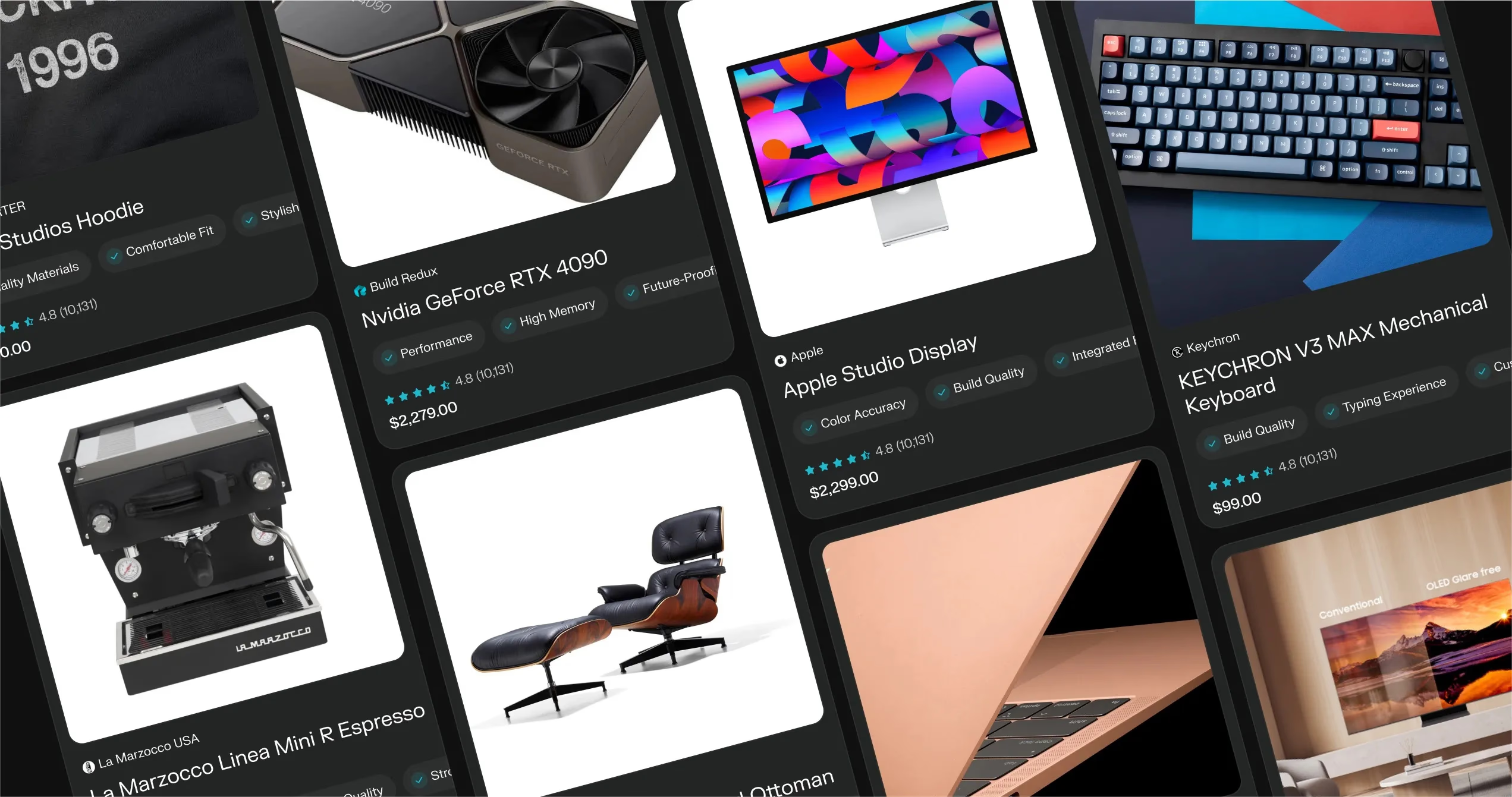Artificial intelligence technology, which has deeply permeated our daily lives, is now transforming even the way we shop. We’re moving beyond simply searching for information and comparing prices; an era where AI accurately grasps our tastes and needs to recommend optimal products is rapidly approaching.
At the forefront of this change are major AI companies like OpenAI OpenAI and Perplexity Perplexity. They are fundamentally revolutionizing the existing internet shopping experience and are poised to shake up the digital advertising market. So, what does the future of shopping envisioned by them look like?
🛒 AI Rewrites the Rules of Shopping
The emergence of artificial intelligence, especially conversational AI, is completely redefining how we find and purchase products. In the past, we had to input specific keywords and sift through numerous search results to find what we wanted. Now, we can enjoy shopping by conversing naturally with AI. Even for everyday questions like, “Find me a lightweight, easy-to-set-up tent for this weekend’s camping trip,” or “Recommend a gentle sunscreen for sensitive skin under $30,” AI can accurately grasp the user’s intent and context to provide tailored answers.
This goes beyond mere improved search convenience; it’s evolving to a level where it can uncover consumers’ latent needs. The day isn’t far off when AI will analyze past purchase history, search patterns, and even subtle nuances in conversation to recommend products perfectly optimized for each individual. For consumers overwhelmed by the flood of information and unsure what to choose, AI can emerge as a personalized shopping curator, reducing decision fatigue and delivering a satisfying shopping experience.
This transformation holds the potential to go beyond the mere act of buying and selling, fostering closer and more meaningful relationships between consumers and brands. Brands can approach customers more authentically through AI, and customers, in turn, will feel loyalty towards brands that better understand them.
🎯 OpenAI’s Unstoppable Expansion: Targeting the Shopping and Ad Markets
OpenAI, which ignited the global AI craze with ChatGPT, is making unstoppable moves. They are integrating shopping features based on their powerful large language models LLMs and even preparing their own search service, aiming for a fundamental shift in internet services.

OpenAI has already introduced some shopping features within ChatGPT, demonstrating the potential for users to search, compare, and even purchase products through natural conversation. For questions like “Recommend a good value Bluetooth speaker,” it goes beyond simply listing products, providing pros and cons of each item, summaries of user reviews, and price comparison information.
This moves away from the traditional one-way delivery of information, performing the role of a shopping assistant that interacts with users to help them make purchasing decisions. For sellers, this could be an opportunity to secure new customer touchpoints beyond existing e-commerce platforms, but it also means preparing for an increasingly competitive environment.

Furthermore, it’s highly likely that OpenAI’s ‘SearchGPT,’ officially launched in October 2024, will also incorporate advertising in the future. OpenAI is reportedly strengthening its capabilities in this area by hiring advertising experts from companies like Meta and Google.
Advertising on SearchGPT is likely to evolve beyond simple keyword matching, displaying optimal ads by understanding user intent and conversational context. For example, it might naturally present ads for related flights or accommodations while answering questions about travel plans, or show promotional information for competing products when a user searches for specific product information.
If advertising is integrated into new AI search services, it could cause a seismic shift in the search advertising market currently dominated by Google, sending ripples through the entire ad industry.
🛍️ Perplexity’s Refined Strategy: Painting the Future with Agentic Commerce
Perplexity, which emerged as an ‘answer engine,’ sees the future of search in AI-powered conversational interfaces and is leading innovation in shopping experiences, particularly through the concept of Agentic Commerce Agentic Commerce. Their strategy focuses on AI handling the entire process—from product search, comparison, and analysis to final purchase—once a user tells the AI what they want.
A pivotal moment for Perplexity in realizing its agentic commerce vision was the recently announced strategic partnership with PayPal PayPal. Through this partnership, users can search for products within Perplexity’s chat interface and, upon finding something they like, complete the purchase instantly via PayPal without needing to navigate to a separate website.
This provides a seamless, one-stop experience integrating search, shopping, and payment, significantly reducing users’ time and effort. The AI faithfully performs the role of an ‘agent,’ finding and suggesting optimal products and handling complex purchasing processes on behalf of the user.

In fact, Perplexity has been offering shopping features to its Pro account users in the U.S. since November 2023 through a feature called ‘Shop like a Pro.’ Users tell the AI their desired price range, product features, and necessary conditions, and the AI comprehensively analyzes information from various online stores to find the best products. The AI takes over the tedious task of manually looking up product reviews and comparing prices.
Additionally, with the ‘Snap with Pro’ feature, users can simply take a picture of an outfit or shoes they like that they saw on the street, and the AI will find similar items. This is an innovative shopping method that combines visual information search with AI’s image recognition technology.

Another of Perplexity’s strengths is its access to a vast product database. Through a partnership with Shopify Shopify, the world’s largest e-commerce platform builder, products from countless online stores built using Shopify can now appear in Perplexity’s search results. This provides a foundation for Perplexity to offer users an even wider and more diverse range of product choices.

In terms of its revenue model, Perplexity has introduced a unique form of advertising called Sponsored Follow-up Questions Sponsored Follow-up Questions. This method presents sponsored follow-up questions related to a topic after a user has asked a question and received an answer. For example, a user inquiring about travel plans to a specific region might be shown follow-up questions as ads, such as, “Would you like to check for special deals from OO Airlines?” or “Want to see promotions from XX Hotel Chain?”
Perplexity emphasizes that this approach is less intrusive to the user experience than traditional banner or search ads, while also increasing ad effectiveness by providing information directly related to the user’s interests. Furthermore, they highlight that it allows for effective revenue generation without compromising the fairness of the search results themselves.
🌐 Seismic Shifts in the Ad Market and the Future Shopping Ecosystem
The full-scale entry of AI companies into the shopping and advertising markets can be both a major threat and a new opportunity for established players. The changes in the advertising market, in particular, are expected to be even more dramatic. Because AI deeply understands user intent and context, it enables far more sophisticated and effective ad placements than traditional keyword-based or indiscriminate banner ads.
For instance, ‘conversational ads’ that naturally recommend related products or services within the flow of a user’s dialogue, or ‘curation-style ads’ that provide information precisely matching a user’s tastes and needs, could become mainstream.
Ultimately, the AI-driven revolution in internet shopping is just at its starting point. The endeavors of AI companies, led by OpenAI and Perplexity, are fundamentally changing how consumers discover and purchase products, and this is projected to lead to a paradigm shift in corporate marketing strategies and the advertising market.
This is more than just technological advancement; it’s a process where the relationships between consumers, businesses, and information & commerce are being redefined. While the future of AI-powered shopping will undoubtedly bring us greater convenience and efficiency, it also raises important questions about data sovereignty, algorithmic fairness, and the value of human connection.